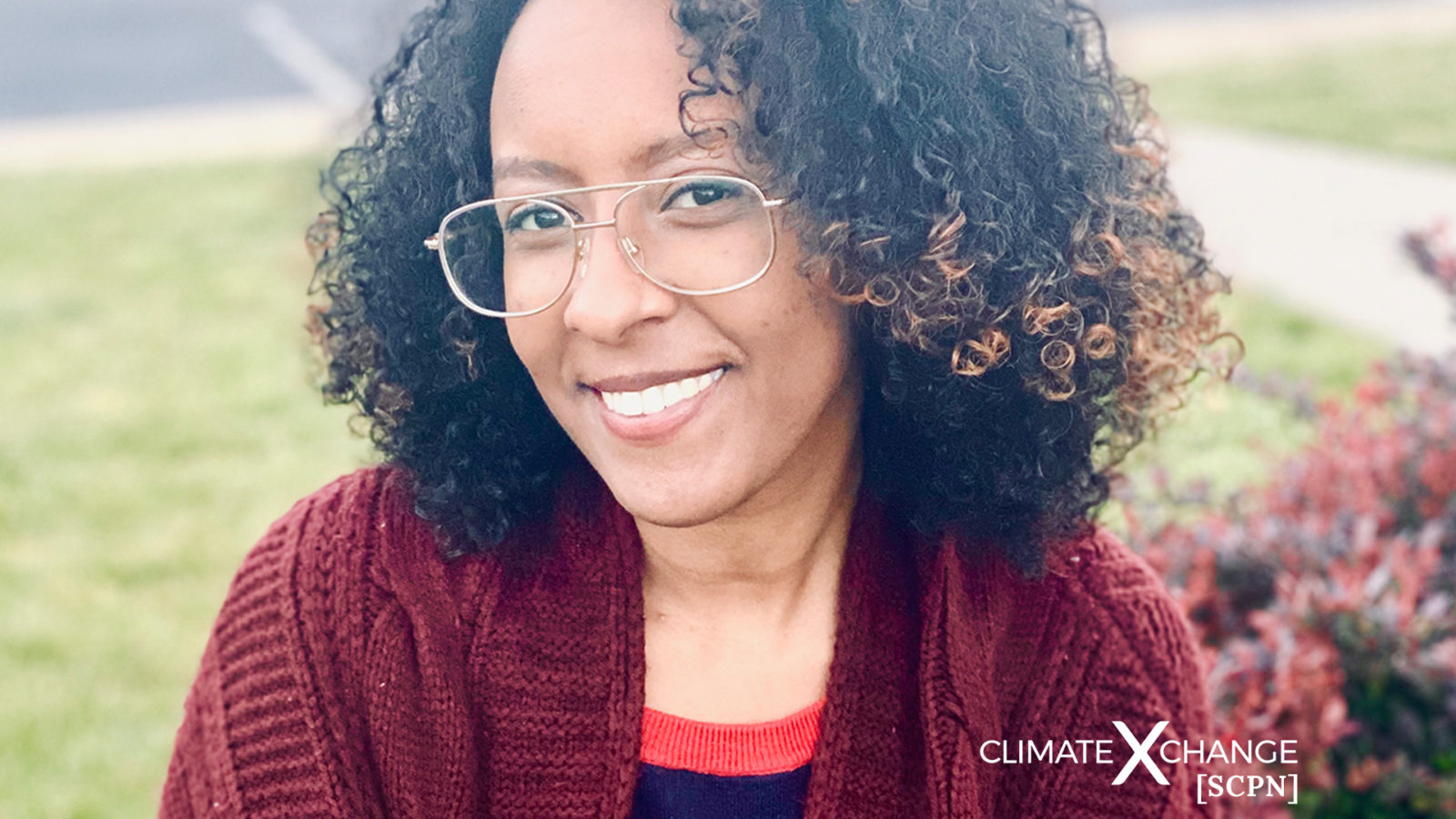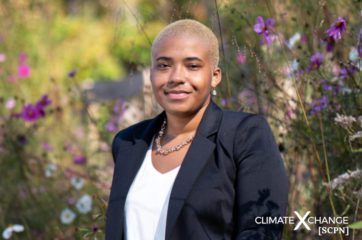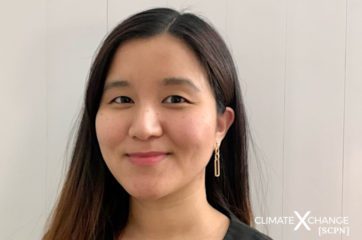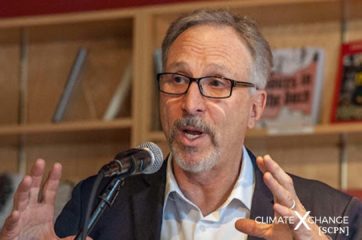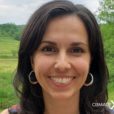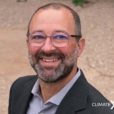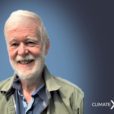All across the country, members of our State Climate Policy Network (SCPN) are fighting to make an impact on climate change in their communities. We have individuals in our Network from all 50 states, each experiencing climate change differently in their local areas and finding unique solutions to build resiliency efforts.
This week, we spoke with Wafa May Elamin, an active SCPN member in Virginia who has worked to build coalitions around issues of environmental justice and human rights. Most recently, she served as the Executive Director of the Virginia Renewable Energy Alliance, where she worked with community organizations to push for equitable renewable energy solutions across the state.
Carlie Clarcq
Good morning Wafa May, thank you so much for agreeing to speak today! I’m excited to learn more about you. If you could start by telling me a little bit more about your background, and what inspired you to start working in the environmental space, that would be great!
Wafa May Elamin
I am an immigrant, a Sudanese American. I came here in ‘98, so I’ve been here all my adult life. I’ve always had a deep connection to international and global affairs, because of where I’m from. When I was growing up and I thought about traditional career paths, I wanted to find a way to utilize my love for the world, and help to make sure that people can live long, healthy sustainable lives. So I went to Virginia Tech and got a Bachelor of Arts in International Studies with a concentration in Environmental Affairs and Bachelors of Science in Environmental Policy and Planning. I really found early on that the well-being of the climate and the Earth is what plays a big role in uniting us all, holistically. We’re reaching a point where it’s amplified now with adverse climate effects on day to day life. So that was my academic background.
It actually took me years to find a job in my field of study, and I’ve now been doing a lot of community related work. I’m really passionate about helping underserved communities, because I’m a part of them, I’m a product of them, so that’s always been something that has been very important for me to tie into the work that I do. I always want to make sure it has a bigger impact. So I’ve done some human rights work, some community building here in Virginia, I worked in the health department for a while and in infectious disease prevention, and earlier this year I finally got a job in my field of study, as the Executive Director of Virginia Renewable Energy Alliance (VA-REA). I started a few weeks before COVID impacted us here; so the challenge was finding a way to advance renewable energy in a virtual setting and in a way that is safe, but is also still collaborative.
A lot of legislation came out of Virginia in this previous year and has opened the doors for accessible clean energy, and set some hefty goals for carbon emissions reduction. We’re seeing a really big shift right now in the energy sector. I’m volunteering right now with the Virginia Energy Workforce Consortium, which is working to advance its 17th energy career cluster. Virginia is one of four states in the nation that has an energy career cluster. This is a unique opportunity to set workforce-wide expectations and collaborative models and approaches. I’m the co-lead for the Industry Demand Committee, so we listen to conversations with industry leaders to assess what the workforce demands are, where there have been gaps, and where we can work to meet the supply. Energy usage has been through the roof with COVID, and we’re finding ways to tie in the equity piece and talent retention. I’m also volunteering with the Richmond Tree Committee. So we’re working to see how we can improve green spaces and add more trees.
Carlie Clarcq
Wow, thanks so much! It’s incredible that you’re involved in so many different things, and it must be so interesting to see environmental work from so many different angles. I’d love to learn a little bit more about your work in community organizing, and how you’ve worked to bring different stakeholders to the table. How do you think that has strengthened a lot of the work that you’ve done?
Wafa May Elamin
Yeah, I think my approach is to look at things through a community lens. I love being in communities and serving people, but oftentimes communities are only looped in at the very end of conversations. So I try to make sure that I create community spaces that involve the people living there. In my Sudanese American community, I helped to start a local non-profit up in the Northern Virginia area called Moving Forward to serve my Sudanese-American specific community. I’m also serving on a Board of Directors for a non-profit in Richmond called Work of Art which serves girls ages 13-18 in low-income communities and we provide them with academic support and mentorship.
For me, I always try to find different ways to tie in people from different tables and separate sides. When I’m on my energy career cluster working calls, I think back to the people I’ve met directly in the communities I’m a part of, or from the communities that might not be seen or heard, or in communities in general. You have to think of the people first. I’ve also done some advocacy work around climate change, but like a lot of movements that have happened, it’s really been white-centered and white-focused for a long time, and when we analyze which communities have truly been adversely impacted despite climate programming, we see adverse effects in Black and Brown communities. We see more green spaces in more affluent communities, but there is an equal need for those in all communities.
And that is really about making sure everyone has a seat at the table. I always say, the rare chance I find myself with a seat at the table, I make sure to pull up three or four more chairs with me. I’m a Black Muslim immigrant woman, and I try to bring that perspective of all the people who will either be directly using this service, or impacted by this legislation, or going to be using these energy systems. Part of why I love the idea of this Spotlight is because you are all using it to amplify other’s voices, and I always try to do that too in my day-to-day as much as possible. I really see myself as a coalition builder, and I work to bring people together who are interested in advancing the same mission and share values, vision and perspectives to collaborate. I think at the end of the day, that’s the quickest way to see the results we want.
Carlie Clarcq
Yeah, absolutely, and I think with an issue as large and as complicated as climate change is, having a lot of diverse perspectives and stakeholders is so important. I know you mentioned that this past year Virginia has passed a ton of climate and energy legislation, were you involved and a part of that?
Wafa May Elamin
Yes, at the time I was at VA-REA, and a lot of the legislation fit into our mission of advancing renewables. The heftiest piece of legislation was the Virginia Clean Economy Act, which moved to set targets of carbon emissions and set the path for a lot of the energy efficiency legislation and the Solar Freedom Act, setting portfolio standards across the state. So I’ve been very tuned into it. My observation was that across the board, the advancement of this legislation has been very collaborative. There was a very heavy focus on an equity lens, and making sure that legislation included the equity piece as a very important component as a sub-category that was highlighted on individual pieces of legislation. Environmental justice and environmental racism seem to be very prevalent in the discussions leading up to the action piece.
Now, on a national level and even a global level, I think those conversations are beginning to be amplified because we’re realizing so many things were built in a way that excluded a lot of people. A lot of our approaches to how we’ve been doing things are changing right before our eyes, and I think we’re at the forefront right now to setting standards for the next generation. I’m finding myself in an in-between phase and have been involved in a lot of coalition groups, because I think this time is all-hands-on-deck within every single effort. It’s being able to say, “what can I do in my capacity?” and “what opportunities can we create for others to support this?” Oftentimes, I’m the only Black person on my calls, and sometimes I’m the only woman too. It’s interesting to think about ways to continue to create efforts and initiatives that are inclusive in terms of who is contributing to them.
Carlie Clarcq
Right. I know slowly the environmental movement is becoming more diverse, but it’s definitely taking a long time. From your perspective, I’d love to hear, why do you think diversity in the environmental movement is so important? How has including diverse voices made the movement stronger, in your work?
Wafa May Elamin
I think that the environmental movement is a movement for the betterment of everybody. Historically, it hasn’t incorporated everyone, when you think of all the people impacted by climate change. The assessment and solution based approach has to come from a lens of, are we tackling every single neighborhood? Are we making sure that everyone is safe? We need to consider things like — if we develop something here, is that going to create really bad flooding in the next neighborhood over, who already has horrible road conditions? I think there has been a lot of grassroots environmental work in Black and Brown communities which are often overshadowed by other work. But it is nice to see right now a shift to be more inclusive, and legitimately more inclusive. My hope is that more efforts and initiatives will make their Diversity, Inclusion and Equity statements, and that they really stop and ask hard questions. Like, what are we doing to actually make sure these voices are heard? There has been an educational gap a lot of times in the climate conversation, because it hasn’t been normalized in a lot of the communities that I’m a part of, because so often we’ve been left out of those conversations. It’s a bit of a catch up happening now, but there are so many people now really enthusiastic to join on. So we have to find ways to create more opportunities and open more doors.
Carlie Clarcq
Absolutely. Thank you so much Wafa May, I really appreciate your time and enjoyed this conversation!

